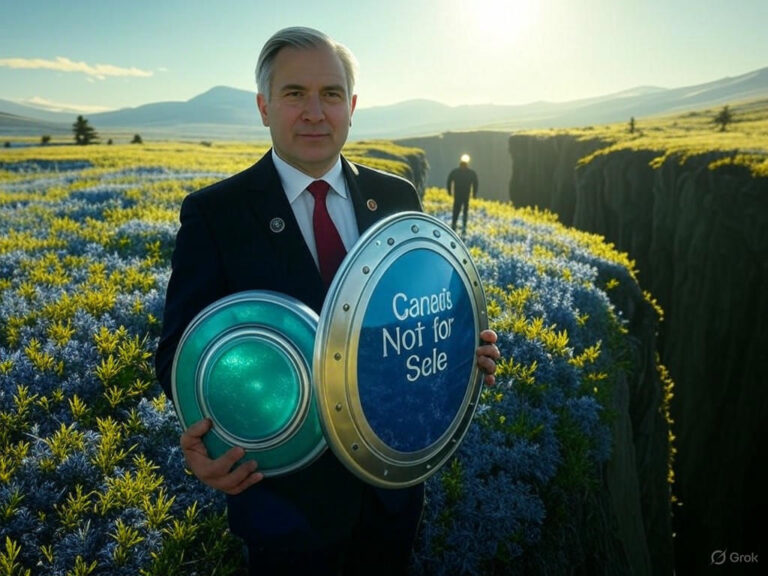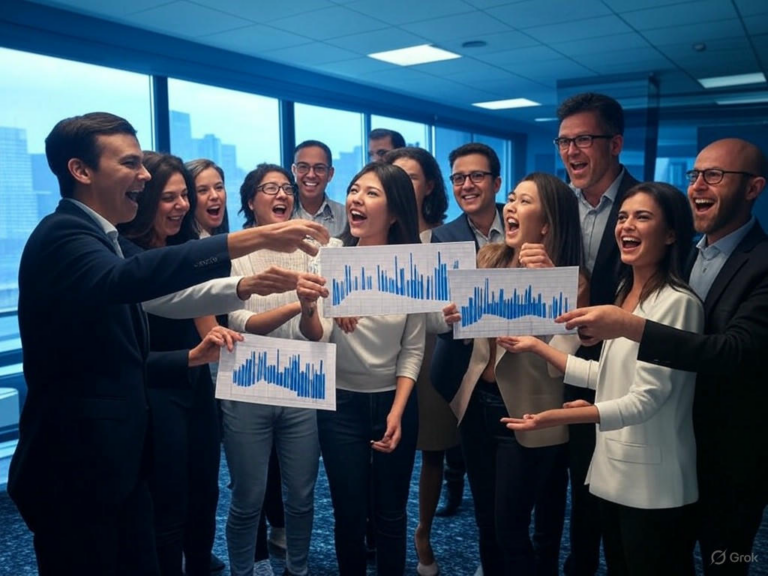
Trump Tariffs Threaten Hollywood’s International Future
A New Era of Trade Barriers
The return of Trump tariffs in 2025 is stirring up uncertainty across industries, but Hollywood feels the pinch most acutely. As the U.S. film sector relies heavily on international box office hits and cross-border collaborations, these potential trade barriers could inflate costs for everything from special effects to distribution deals. Have you ever wondered how a single policy change might derail a multimillion-dollar production?
Trump tariffs, aimed at protecting domestic interests, risk fracturing the global networks that have made Hollywood a cultural powerhouse. Studios like Disney and Warner Bros. thrive on partnerships with talents from Europe, Asia, and beyond, generating billions from overseas audiences. If import taxes on technology and creative assets escalate, it could erode profits and force a rethinking of how films reach global viewers.
This isn’t just about numbers; it’s about the stories that unite us. For instance, imagine a major franchise like the next James Bond film facing delayed releases in key markets due to retaliatory measures—suddenly, what was a surefire hit turns into a financial gamble.
How Trump Tariffs Are Reshaping Hollywood’s Business Model
At the heart of Hollywood’s dominance is a web of global connections, from funding films in international co-productions to outsourcing visual effects to cost-effective hubs like Vancouver or Mumbai. Trump tariffs threaten to unravel this by hiking the price of imported equipment, software, and even licensed content, squeezing studio budgets that are already razor-thin.
Experts point out that these tariffs could add layers of complexity to production timelines. For example, if components for high-end cameras or digital tools face extra duties, delays might push back releases, affecting everything from marketing campaigns to investor returns.
Core Risks for Hollywood Under Trump Tariffs
- Rising costs for essential imports like advanced production tech, which could force studios to cut corners or scale back ambitious projects.
- Reduced access to international talent, as foreign creators might hesitate to collaborate amid escalating trade tensions.
- Potential loss of vital box office revenue from markets like China, where Trump tariffs might trigger local restrictions on American films.
- Disrupted distribution channels, making it tougher for streaming giants like Netflix to license content globally.
This shift isn’t theoretical—it’s already casting shadows. A recent analysis suggests that if Trump tariffs take full effect, production costs could surge by 10-15%, prompting studios to rethink their strategies.
Global Trade Tensions: Hollywood’s Vulnerability to Trump Tariffs
Hollywood’s financial engine runs on foreign markets, with China alone accounting for a quarter of global box office earnings in recent years. But Trump tariffs could provoke backlash, leading countries to impose their own barriers against U.S. entertainment exports. This might mean longer approval processes for films or even outright quotas on American content.
Picture this: A highly anticipated sequel gets shelved in Europe due to new import fees, not because it’s unpopular, but because the economics no longer add up. Such scenarios echo past trade wars, where industries had to pivot quickly to survive.
The European and Chinese Response to Trump Tariffs
- Increased regulatory hurdles for U.S. films in the EU, potentially delaying premieres and reducing audience reach.
- Stricter quotas on Hollywood blockbusters in China, pushing local studios to the forefront.
- Growing emphasis on co-productions with non-U.S. partners, like Indian or Korean filmmakers, to sidestep the fallout from Trump tariffs.
These changes could accelerate a trend toward more diverse, localized storytelling, which might benefit global audiences but challenge Hollywood’s traditional dominance.
Case Study: Historical Parallels and Lessons from Trump Tariffs
Looking back at events like the Smoot-Hawley Tariff Act of 1930, we see how protectionist policies, similar to those proposed in Trump tariffs, backfired spectacularly. That era’s restrictions deepened the Great Depression by choking off international trade, and Hollywood, even then, felt the strain as global distribution networks frayed.
Today, the parallels are striking. If Trump tariffs lead to a fragmented market, innovation in filmmaking could stall, with studios focusing inward rather than pushing creative boundaries. What if, instead of sharing blockbuster ideas worldwide, we’re left with isolated content bubbles?
One key lesson is adaptability—studios that diversified during past downturns, like pivoting to home video in the 1980s, emerged stronger. Hollywood might need to apply that same resilience now.
Creative Industries at a Crossroads with Trump Tariffs
The entertainment world is already navigating seismic shifts from streaming and AI, and Trump tariffs could amplify these challenges by disrupting revenue flows. Analysts predict that without intervention, international profits—Hollywood’s lifeline—might drop by as much as 20% in the next few years.
Take Rick Murray, a communications expert, who puts it bluntly: “Business models for creative industries are being turned upside down; revenue streams that once fueled agencies won’t exist in three years.” This underscores the urgency for studios to act.
Expert Insights on Navigating Trump Tariffs
“So true—business models for creative industries are being turned upside down, revenue and margin streams that once fueled agencies of all types don’t need to exist now and won’t exist in three years.”
– Rick Murray, communications expert
With Trump tariffs looming, filmmakers are asking: How can we protect our global storytelling while adapting to these economic pressures?
Comparing Hollywood’s Exposure to Trump Tariffs with Other Sectors
To grasp the full impact, let’s compare Hollywood’s situation to other industries vulnerable to Trump tariffs. While tech firms deal with hardware imports and manufacturing faces raw material costs, Hollywood’s reliance on intangible exports like content makes it uniquely exposed.
| Industry | Main Global Dependence | Tariff Sensitivity |
|---|---|---|
| Hollywood (Film & TV) | International box office, outsourcing VFX, global distribution | High |
| Tech Industry | Imported hardware, software licensing, remote teams | Very High |
| Manufacturing | Raw materials, global assembly, export markets | High |
| Agri-food | Export markets, supply chain inputs | Medium |
This comparison highlights why Trump tariffs could hit Hollywood harder, as its “product” is often collaborative and borderless.
SEO Insights: Key Questions on Trump Tariffs and Hollywood
For industry insiders, the big questions revolve around sustainability: How will Trump tariffs inflate production budgets and alter competitive dynamics? Can Hollywood hold onto its market share when access is restricted?
- What strategies might mitigate risks from Trump tariffs, such as relocating shoots or forming international alliances?
- Will these barriers spur more investment in local content, reshaping how stories are told and consumed?
Addressing these could help studios future-proof their operations.
Actionable Strategies for Industry Stakeholders Amid Trump Tariffs
To weather the storm of Trump tariffs, Hollywood needs proactive steps. Start by diversifying income sources—think merchandise, virtual events, or branded experiences that aren’t tied to traditional exports.
- Invest in cross-border co-productions to share costs and tap into new audiences, reducing reliance on U.S.-centric models.
- Embrace digital tools for direct-to-consumer distribution, bypassing intermediaries affected by tariffs.
- Lobby for policies that promote cultural exchange, ensuring the industry has a voice in trade talks.
These tactics aren’t just survival tools; they’re opportunities for innovation. For example, partnering with African filmmakers could open untapped markets while enriching content diversity.
The Broader Impact: Culture, Innovation, and Trump Tariffs
Beyond the balance sheets, Trump tariffs jeopardize Hollywood’s role in cultural diplomacy. Films have long bridged divides, fostering empathy and shared experiences—think of how “Black Panther” resonated globally.
If barriers stifle this exchange, we might see less cross-pollination of ideas, slowing innovation and limiting what stories get told. It’s a reminder that entertainment isn’t just business; it’s a vital part of our interconnected world.
Conclusion
As Trump tariffs edge closer, Hollywood must adapt swiftly to protect its global legacy. By fostering strategic partnerships and embracing change, the industry can turn challenges into chances for growth. What are your thoughts on how these tariffs might reshape entertainment? Share your ideas in the comments, explore our related posts on global trade, or subscribe for more insights on industry trends.
References
- Holtz, Inc. “For Immediate Release FIR Cuts from Episode 408.” holtz.com.
- Aldo Media. “Trump Tariffs and the Tech Industry Impact.” aldomedia.com.
- Marketing Over Coffee. Podcast feed. marketingovercoffee.com.
- Holtz, Inc. “Friday Wrap 58: Declining Appeal of Social Sites.” holtz.com.
- OpenStax. “Principles of Marketing.” openstax.org.
- Resurety. “Data-Driven Awesomeness by Author.” resurety.com.
Trump tariffs, Hollywood, international market, film industry, global trade, tariffs impact, entertainment economy, cultural exchange, trade barriers, creative sectors






